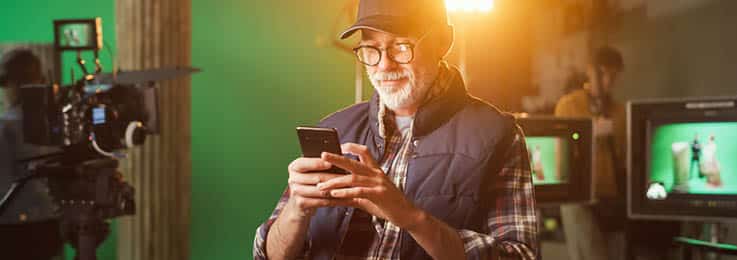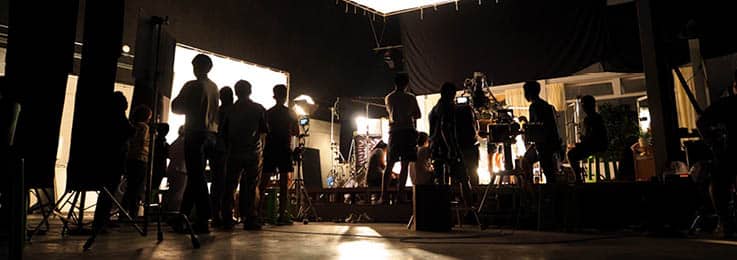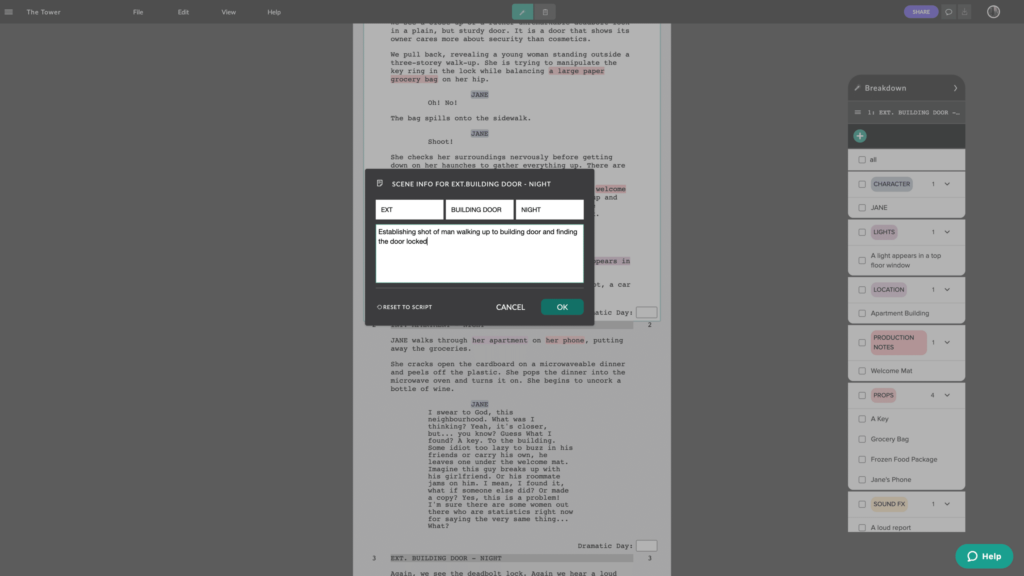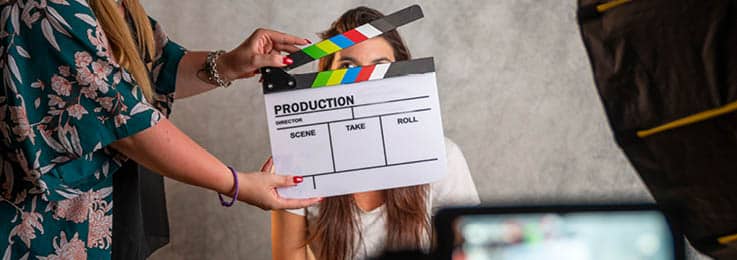
What Does a Movie Producer Do vs. a Director? 5 Key Differences
Have you ever wondered, ‘What does a movie producer do compared to a director?’ You’re not alone!
Whether you’re a film enthusiast or an aspiring filmmaker, understanding the key differences between a producer vs. director is essential. While both roles are crucial to filmmaking, they focus on entirely different aspects of production.
In This Article:
- What’s the Difference Between a Director and a Producer?
- The Role of a Producer
- The Role of a Director
- Frequently Asked Questions
- Final Thoughts
What’s the Difference Between a Director and a Producer?
In short, a producer is mainly responsible for managing the behind the scenes aspects of production. A director, on the other hand, is more so responsible for the creative elements of the final product that will be put on screen. Both roles are essential to a film production’s success and require a unique set of skills and experience.
Now that we have a general understanding of the difference between a producer and a director in film- let’s delve deeper into their specific roles and responsibilities. As we will see below, while their duties may differ, they both play an essential role in bringing a film or television production to life.

The Role of the Producer
Producers oversee the logistical and financial aspects of filmmaking, ensuring the project stays on budget, on schedule, and reaches the right audience. Let’s break down their key responsibilities.
Set a Budget
A film producer is responsible for raising money and managing the film’s finances. But their role goes beyond just securing funding—they also allocate resources across every stage of production. From actors’ salaries to equipment rentals, the producer’s job is to ensure the budget supports the project’s needs without overspending.
Related Celtx Reading: How to Create a Film Budget [Guide with Templates]
Hire Cast and Crew
A key difference in the main role of a producer versus a director is that the producer is very much like the steward of the project. They oversee it from start to finish.
In light of this, the producer is usually involved in casting, as well as selecting key crew members, which includes the director. This is why it’s crucial for directors and producers to get along whenever possible – as they often work closely together throughout the project.
Because producers know the material well, they are able to help with casting, and not just the business side in this stage of production. Again, to ensure everyone is doing their jobs, they are there to guide the project – which includes both cast and crew.
Create Schedules
Once the cast and crew has been hired and brought on board to a project, the producer then helps with creating a filming schedule. Time is money, so this is another aspect of the business side of the producer’s responsibilities.
Of course, this would not be done by someone like an executive producer, but rather those who are the hands-on producers that will be on set and keep everything moving forward. The everyday scheduling and budget work hand-in-hand. This is key to the project.
Luckily for directors, the high pressure, tedious, and often overwhelming task of managing schedules is a logistical responsibility of the producer.
Create a Marketing Plan
Building an audience before a film is released is not just a good practice in entertainment – it’s also good business. This is why the producer oversees and creates a marketing plan that will take the project the whole way.
From the advertising campaigns all the way to major distribution, unlike the director, the producer’s job doesn’t end until it is out in the world, available to the public and the film’s newest fans.
Manage Stages of Production
No film project is complete without going safely through multiple stages of production. And the producer is in charge of overseeing, and sometimes even funding, all of those stages. From pre-production, to production, to post, a producer’s role is to be available to oversee each one to completion.
In contrast, although a director can often be involved in casting, a producer has many other responsibilities in the pre-production stage, which can include script rights acquisition, scouting key crew members, and funding.

The Role of the Director
Directors focus on the creative execution of a film, shaping its visual style, guiding performances, and bringing the script to life. Here’s a closer look at their essential duties:
Direct Camera and Actors
This one may seem straightforward, but unlike the producer, directors must be more creatively inclined. From operating cameras, to managing people in every department, the main role of a director can be very busy and taxing on set.
For this reason, many directors can be considered multi-taskers, or multi-talented, if you will. On set, these qualities lend the role of the director to uphold the creative process from a technical standpoint.
In other words, the camera and actors are two sides of the same coin – and the director is in charge of managing them both.
Recommended Celtx Article: Do Film Directors Write the Script? (Quick Answer)
Interpret Scripts
A film director takes the script and transforms it into a visual story. Unlike a movie producer, who focuses on logistics, the director decides how each scene should look, sound, and feel. This involves breaking down the script into shot lists, deciding on visual style, and working closely with actors to bring characters to life.
Start writing your script today with the Celtx Script Writing Editor – Sign up Here (It’s Free!)

Choose the Style
From the script, the director may come up with the style and tone of the film. This can include everything from coloring to wardrobe to stunts. Essentially, it’s the look and feel of the film that is relayed to the audience when it’s complete.
This part of directing requires lots of preparation, and is one part where the producer and director may work closely together.
Help with Casting
Because the director is in charge of setting the creative tone from the script, they are able to help find the right actors to cast to achieve the creative vision. This is why directors will sometimes meet with potential cast members before production, and may even help with the audition process.
The director’s close dealings with the story and script helps guide him to work with the producer and other people who decide who will be cast.
Work with Editors
In order to maintain their initial vision for the film, a director will often work closely with the editor that will piece the film together. They help guide the editor to use the raw footage and audio to achieve the look and feel of the script that was shot.
This is one of the last parts of a film project, and therefore, one of the final responsibilities of the director in post-production.

Frequently Asked Questions
What’s the Difference Between a Movie Producer and a Director?
Put simply, a movie producer manages the financial aspects of film production, whereas a director manages the creative aspects, such as storytelling and visual style.
Who has more power, a director or a producer?
A producer typically has more power as they oversee the entire project, including hiring and budget decisions. However, a director has creative control over the film’s vision and execution.
Can someone be both a producer and a director?
Yes! Many filmmakers take on both roles, especially in independent productions. Well-known examples include Quentin Tarantino, Christopher Nolan, Jordan Peele, and Greta Gerwig.
Read more about the all-in-one filmmaker in our article: Is the All-in-One Filmmaker the Future of the Movie Industry?
Do producers or directors make more money?
It depends on the film’s success and the individual’s contract. Producers often have long-term financial stakes in a project, whereas directors are typically paid a set fee.
Final Thoughts
Understanding the differences between a producer and director is key to appreciating how films come together. Whether you’re interested in the business side of film production or the creative aspects of directing, both roles are essential in bringing a movie to life.
Want to start your own film project? Try Celtx’s scriptwriting and pre-production tools—free for 7 days!

Enjoyed This Article? Try These Next!
- When Executive Producers and Producers Clash on Set
- 6 Essential Camera Shots Every Screenwriter Should Know
- Am I “Too Old” to Start a Career in Film?
